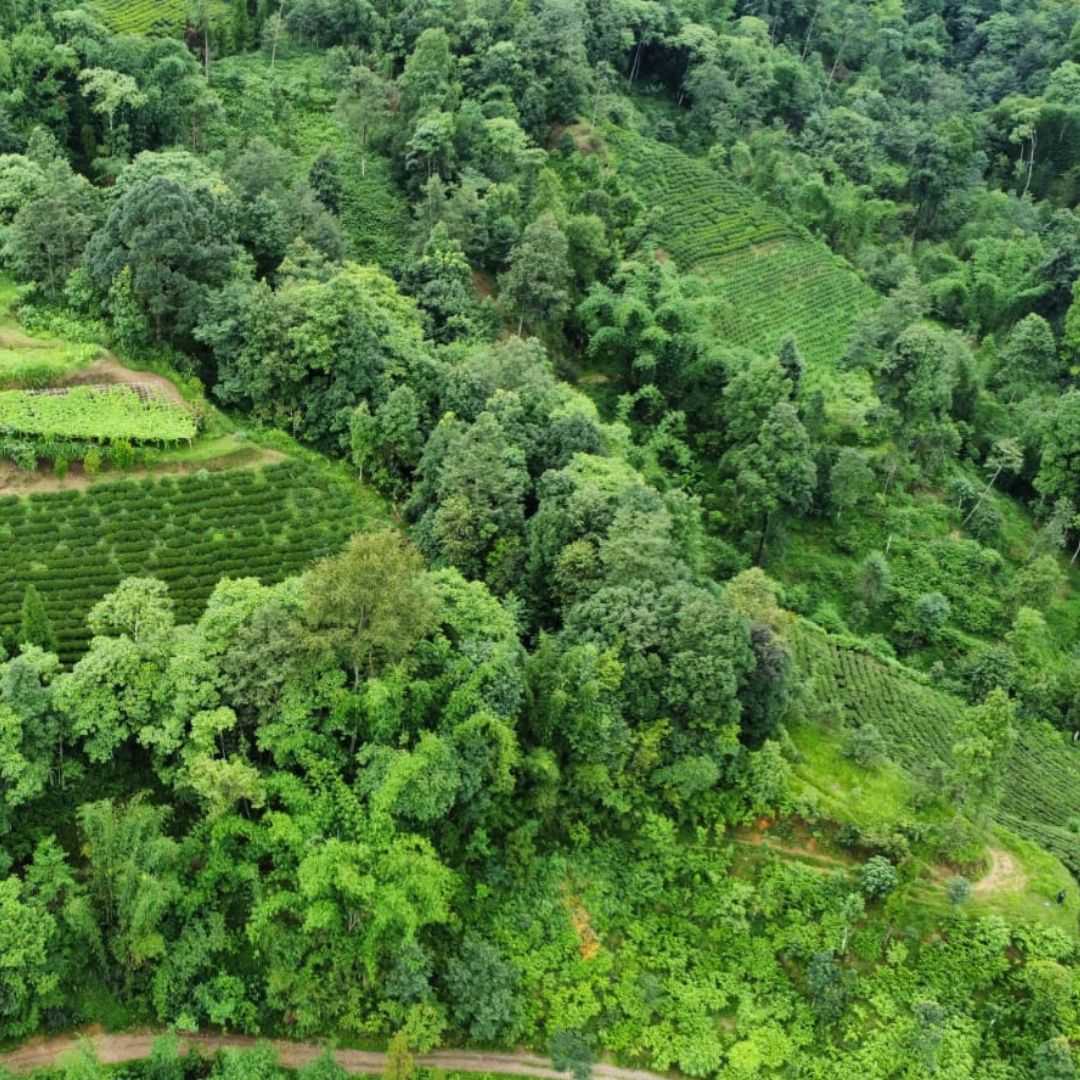In the mid-90s, a quiet village in eastern Nepal witnessed a revolution—one that transformed its landscape and its people. This revolution was the birth of a new era in tea farming, but it came with a price. As tea nurseries sprouted across the village, the environment paid a heavy toll. This story sheds light on the importance of sustainable tea and why it's crucial for the future.

A Changing Landscape: The Birth of Tea Plantations
In 1995-96, our village saw a rapid expansion in tea cultivation. Excitement filled the air as new nurseries were created, and tea saplings began to grow. But alongside this growth, something devastating happened—a massive environmental loss that still haunts me.
As a child, my friends and I spent our days exploring the lush forests. We’d pick berries, watch a diverse array of birds, and occasionally spot deer and foxes. The forest was our playground and provider, offering firewood, grass, and wild fruits. But as tea plantations began to take root, the decision was made to clear the forest. What followed was a heart-wrenching transformation.
The Environmental Cost: A Bitter Memory
Overnight, tractors and trucks descended upon our village. The narrow roads were suddenly crowded, and within days, the sound of falling trees filled the air. The once vibrant forest, home to countless species of birds and animals, was reduced to a graveyard of tree stumps. It was a sight that deeply affected me.
I remember asking my father why this was happening. His answer was simple: "This is for your future." But as the trees fell and the birds disappeared, it was hard to see how this was beneficial. It took over five years for the tea bushes to cover the barren land, but the damage was done. The rich biodiversity of our village was lost, replaced by rows of tea plants.
For those in North America, this story might evoke memories of the 2018 California wildfires. These fires, fueled by a combination of drought, climate change, and human negligence, destroyed entire communities and wiped out natural habitats. Just as the forest in my village was sacrificed for tea plantations, the wildfires left a scar on California's landscape, reminding us of the delicate balance between human activity and nature.
The Path to Sustainable Tea: Learning from the Past
Years later, the community began to understand the importance of balance. They started planting Mimosa plants and pine trees alongside the tea gardens to prevent landslides and provide shade for tea pickers. But the birds never returned in the same numbers. From 20 species, the diversity dropped to just eight. It was a stark reminder of the impact human actions can have on nature.
Today, when discussions about sustainable tea arise, it brings back memories of those days. Sustainable tea is not just a buzzword; it’s a necessity. It’s about finding a symbiotic relationship between man and nature. While the past cannot be changed, it has taught us valuable lessons about the importance of preserving our environment.
What is Sustainable Tea?
Sustainable tea refers to tea farming practices that respect the environment, support the community, and ensure that future generations can enjoy the benefits of tea without harmful consequences. This involves reducing the use of chemical fertilizers, protecting biodiversity, and investing in the well-being of the people who cultivate the tea.
The goal of sustainable tea is to create a system where tea production does not come at the expense of the environment or the community. This means planting trees to replace those that were cut, using organic farming methods, and ensuring fair wages and working conditions for tea pickers.
The Future of Tea Farming: A Call to Action
As consumers, our choices can make a significant impact. By choosing sustainable tea, we support practices that protect the environment and promote social responsibility. It's not just about enjoying a cup of tea; it's about making sure that the tea we drink is produced in a way that is kind to the planet.
When we choose sustainable tea, we choose a future where both nature and humanity can thrive. We choose to support farmers who are committed to preserving the land for future generations. We choose to protect the delicate ecosystems that make our planet unique.
Reflecting on Our Choices- choosing sustainable tea
As I reflect on the transformation of my village, I realize the importance of sustainable tea. It’s more than just a farming practice; it’s a commitment to ensuring that the mistakes of the past are not repeated. The environmental destruction in my village was a harsh lesson, just as the California wildfires were a wake-up call for many.
So, the next time you brew a cup of tea, ask yourself: Is this tea produced sustainably? How can I support the environment and the farmers who work so hard to bring this tea to my table? By choosing Nepal Hills Tea which sources sustainably produced tea, we can all play a part in protecting our planet for future generations.
Written by:
Bhaskar Dahal
Founder, Nepal Hills Tea Inc.




